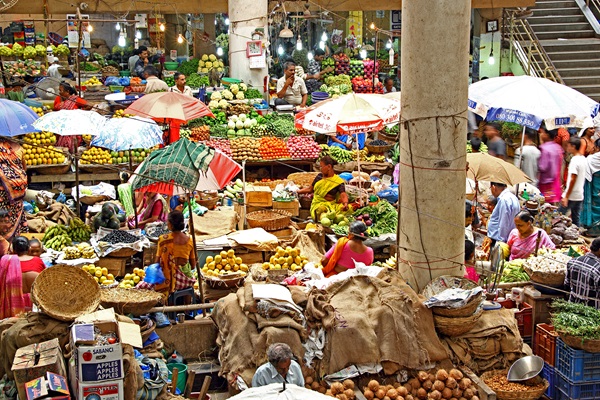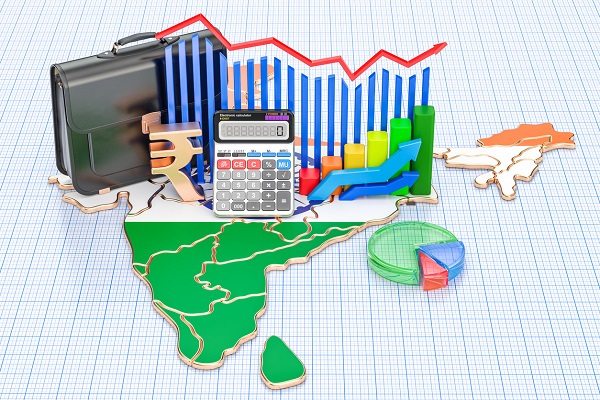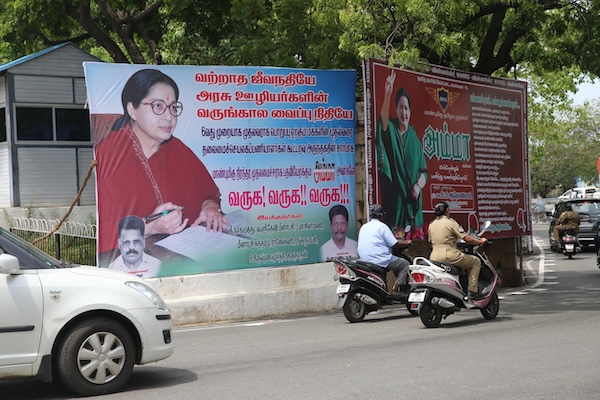.png)
Wrong Messaging When the State Comes for Anna‑data on the Footpath
Broadening the net should mean including those with real capacity, rather than chasing the smallest trader with penalties built on data alone. Reform must begin by trusting citizens, while still asking the better-off to pay their share.


Dr. Srinath Sridharan is a Corporate Advisor & Independent Director on Corporate Boards. He is the author of ‘Family and Dhanda’.

Anand Venkatanarayanan is co-founder and Chief Technology Officer at DeepStrat
August 1, 2025 at 7:24 AM IST
Recently, a viral story did the rounds — a GST notice served to a vegetable seller in Karnataka for a sale of ₹3 million, which startled even seasoned observers. A tax demand of over ₹550,000. Interest, calculated at 18% per annum, adding close to ₹300,000. And a penalty equal to the original tax itself. Altogether, a ₹1.4 million rupee demand aimed at a man whose life revolves around buying perishable produce before dawn and selling it by dusk.
Pause and consider what daily life looks like for a small vegetable trader. (S)He wakes before three in the morning, heads to the wholesale market, buys produce, pays for transport, ‘rents’ a street corner, and stands all day under the sun or rain hoping to sell enough to break even. Most such traders operate as sole proprietors with a single PAN. In theory, they could claim deductions if they kept detailed books, like any other business. In practice, they barely have time to pause, let alone maintain accounts. And while there is no GST on selling fresh fruits, vegetables and flowers the taxman can still appear if digital payments push turnover above a threshold. Mere cash flow is not revenue, and without grasping that difference, policy risks punishing those whose apparent numbers mask a far harsher truth.
For those who think India’s credit system is modern and generous, life on the street tells another story. Each morning, these traders borrow about ₹5,000 to buy stock. But lenders deduct interest upfront, so only around ₹4,500 actually reaches them. By night, they must repay ₹4,500 plus another ₹1,000, totalling ₹5,500. Daily sales might add up to around ₹8,200. Payment aggregators then take 1-2% just to move money into a bank account.
Daily costs follow: about ₹600 for two helpers, ₹500-700 on transport, roughly ₹200 for spoilage, and around a ₹150 for location rent or informal fees — even if we pretend corruption doesn’t exist. At day’s end, what remains is barely ₹800. Over a year of dawn-to-dusk work, that means an annual income of around ₹300,000 — a piddly margin of 10% on ₹3 million.
And yet, many treat the ₹3 million as equal to salary of a white-collar professional and clamour for taxing her. This trade is built on perishables, unpredictable demand and wafer-thin margins. Policymakers often forget that gross sales alone do not show risk, exhaustion, or the fact that one rainy day can wipe out a week’s earnings. At its core, taxation is part of the social contract: what the state takes must return to citizens as shared security, opportunity and dignity.
Yet politically, both states and the Centre face rising expectations. Voters want subsidies, welfare schemes and steady spending. Governments then feel pressure to raise more revenue to keep these promises. Officers' themselves face pressure to raise demand and fill fiscal gaps in state coffers. In many ways, they are as constrained by the system as the traders they end up chasing with such notices.
It is fair for states to choose subsidy-driven politics, even if it strains coffers. While few of us seem to have the voice to remind our political system that, like households, we must spend less than we earn, the same holds true for fiscal prudence. But when it comes time to refill the treasury, what is needed is reform and imagination — not the sharp blade of notices pressed on the throat of poor citizens.
Financial inclusion will not come from pushing the smallest vendors into paperwork they can barely manage. It will come from policies that help them grow, save and employ more. It also shows a deeper problem: a narrow imagination when it comes to broadening the tax base. Instead of designing ways to bring in digital businesses, high-consumption households or new sectors, policy too often chases those easiest to track. A notice demanding penalties worth several years of income from a vegetable seller feels punitive, and disconnected from the ground.
This is not an argument against taxing those who truly can pay. Fair taxation is essential. But fairness means knowing the difference between those with real surplus and those living on the thinnest margins, rather than chasing what data trails reveal.
A state truly committed to inclusive growth must look beyond spreadsheets to see our nano-entrepreneurs, who probably number around 50 million across the country — the vendor at the crossing, the hawker in traffic, the pushcart trader whose daily earnings keep a household afloat. Each careless notice risks pushing trade back to cash, undermining faith in digital systems and turning citizens away from formalisation.
The idea of ease of doing business must not stop at big factories or glass-tower startups. It should also reach the nano entrepreneur, who toils for 16 hours a day just to eke out a living.



